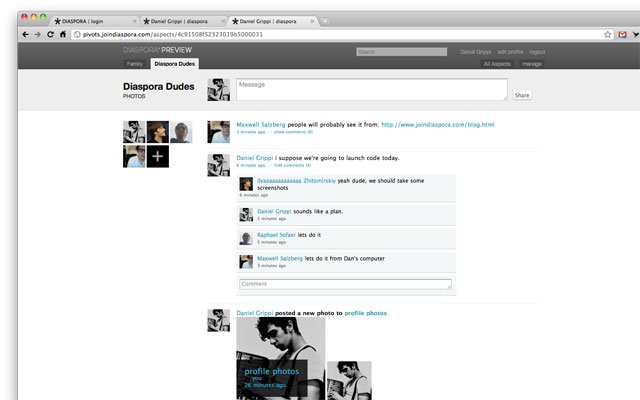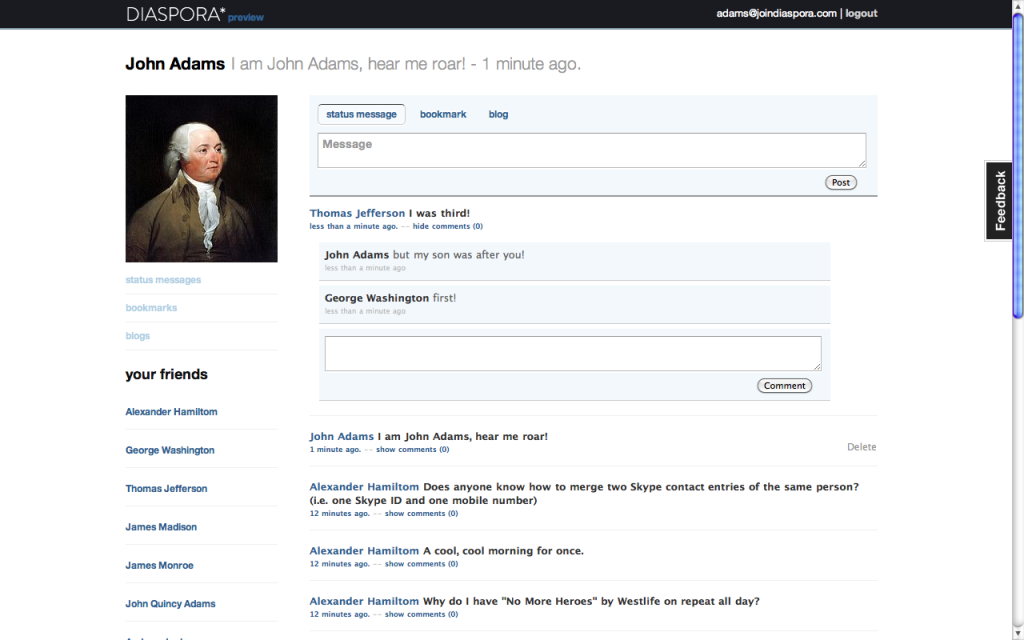South Africa’s esports scene is set for a major showdown as Hyprop and MTN introduce SHIFT COD, a Call of Duty tournament forming part…
Diaspora scores on privacy but will it ever go mainstream?
 Diaspora, the open source social network that puts user privacy above all else, is now rolling out in private alpha. The question is: can it hold its own against Facebook, or MySpace, or even Ning? Early indications seem to indicate that the answer is no.
Diaspora, the open source social network that puts user privacy above all else, is now rolling out in private alpha. The question is: can it hold its own against Facebook, or MySpace, or even Ning? Early indications seem to indicate that the answer is no.
Although Facebook has run into backlash several times over its approach to users’ information, it continues to grow like gangbusters, surpassing more than 550-million unique users in October, according to ComScore.
Clearly, privacy concerns are something plenty of people pay lip service to, but rarely do anything about. If Diaspora is to succeed, it will need to offer more than just locked-down data security as an incentive.
So far, alpha testers report that there is very little to distinguish Diaspora from the giant social networks.

There are however subtle differences. Its architecture is different, distributing the hosting duties across a “diaspora” of servers run by users themselves. Because the code is open source, a community has already developed around fixing bugs and improving usability.
Diaspora includes a simple way for users to export all of their own data via XML, or an archive of images. In Facebook’s case, some data can be exported, but so far only using third-party applications. Facebook is so stringent about what can be taken out of profiles that Google launched a landing page earlier this month, warning people about exporting contact info from Google to Facebook.
The page reads: “Are you super sure you want to import your contact information for your friends into a service that won’t let you get it out?”
One of Diaspora’s key features, called “aspects”, enables users to break their contacts into different groups. This is something that Facebook has already been evolving, moving beyond Facebook Groups to a new kind of “social inbox” announced by CEO Mark Zuckerberg earlier this month.
As it is, Diaspora offers basic link, message and media sharing and still resembles a ghost town because so few people have been granted alpha invites.
For his part, Zuckerberg has shown no concern about Diaspora impacting his business. In fact, he invested in the idea, proposed by four New York University students in April and fully funded on Kickstarter within five weeks.
“I think it’s a cool idea,” Zuckerberg told Wired in May. “I think it’s cool people are trying to do it. I see a little of myself in them. It’s just their approach that the world could be better and saying, ‘We should try to do it.’”
The four founders, Daniel Grippi, Maxwell Salzberg, Raphael Sofaer and Ilya Zhitomirskiy graduated from NYU in the spring, then moved to San Francisco to build their dream. After releasing a small number of invites last week, Diaspora has closed itself to new members for the time being while it makes fixes.
Facebook is now so entrenched that launching a “Facebook killer” is just as absurd as launching a “Google killer”. But the four former students aren’t trying to kill Facebook, just offer an alternative. In doing so, they are likely to push Facebook further toward data portability and transparency.
Diaspora has a long way to go. But this is a labour of love that can run on a shoestring budget, operating based on a very popular ideology. By playing the privacy card, the operation will likely continue to punch above its weight class, winning free publicity while enjoying just enough of Facebook’s limelight. Before we know it, Facebook might even acquire Diaspora (assuming the founders wouldn’t consider that treason).
But do we really expect to be “Diaspora-ing” with all our friends and family anytime soon?
No, probably not.

